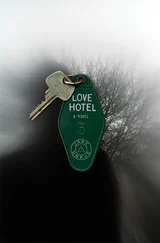Since bed and board constitute marriage. 7
(This is metonymy.)
FREUD
[A symptom is]
The grain of sand around which the mollusc forms the pearl.
(This is metaphor.)
My bed stands in the middle of my hotel room. Important, would you say, sacrificial, would you say, ceremonial? No. Mansfield (or her avatar) despised metaphor, metonymy: “My dear little lady,” says Herr Erchardt, “you must not take the quotation literally.”
KM’s narrator refuses abstraction, but she also despises her own solid legs, the German Pension’s solid food, the solid bodies of the Germans and their children, and their bodily functions, which so delight them, especially when they turn them into words.
KM worries about bodies. Her physical condition produces mental symptoms (disgust).
Dora’s neuroses enact physically (Freud says, “somatically”).
A somatic symptom, says Freud, is neuroses’ “escape route into the physical.”
Dora is a physical case.
KM is a mental case.
I am always escaping. I am no more than a suitcase.
VII
FREUD
A regular dream stands, so to speak, on two feet, one of which is the actual and essential cause, while the other touches upon an important event in childhood.
I think of a dream as something like a hotel wardrobe. It has an inside and an outside. It is waiting to be filled. But two feet do not seem enough to support such a massy piece of furniture. A suitcase stands upon two wheels and is, perhaps, a more suitable metaphor.
My suitcase stands in the corner of my hotel room, small and black, square-shouldered as a visiting psychoanalyst.
It clasps its hands behind its back and says tell me about your symptoms .
No, I will tell it about Dora’s dream.
Dora dreamt that her house will burn down. Her mother wanted to save her jewelry; her father became angry and insisted the family must escape without it. In any case, Dora’s father did not like Dora’s mother’s jewelry.
DORA
Mama and Papa had a big row about a piece of jewellery. Mama wanted to wear something particular, drop pearls in her ears. But Papa doesn’t like that kind of thing, so instead of the drop pearls he brought her a bracelet. She was furious, and told him that if he’d spent so much money on a present that she didn’t like then he should give it to someone else.
FREUD
(To Dora)
So far you’ve talked about the jewellery and said nothing about a box.
DORA
(Says nothing about the box)
FREUD
You may not know that “Jewellery box” is a popular expression used to refer to something you recently alluded to when you talked about the handbag, that is, the female genitals.
It never does to explain a joke, but that’s psychoanalysis, I guess.
FREUD
I give both organs and processes their technical names. I call a spade a spade.
There are no spades in my hotel, no evidence of home work, or any other kind of work, only of its results. And indeed Freud did not say, “I call a spade a spade,” as it appears in the English translation of A Fragment , but “j’appelle une chat une chat” (I call a cat a cat).
FREUD
One can talk to girls and women about all kinds of sexual matters without doing them any harm.
Freud denies that mentioning a spade produces the frisson that calls the spade into action.
A spade is made for action but a symptom is the product of inaction, of “an instinctual satisfaction which has remained in abeyance.” It acts, but not like a spade. It is impossible for a spade to act in a hotel.
FREUD
No one can undertake the treatment of a case of hysteria until he is convinced of the impossibility of avoiding the mention of sexual subjects.
Or, as Freud says (again, in French), “You can’t make an omelette without breaking eggs.”
You could break an egg with a spade, but it might not make for a good omelette.
You could make an omelette for a cat, but it might not lay eggs.
Freud calls a symptom a “conversion disorder.” It is true; my house is in disorder. I want something to happen, some kind of conversion. When I return from the hotel I must make myself a better house. I must convert it into what? A home? Would it have helped if I had at least spoken about things differently, if I could, perhaps, have itemized what went into home, described even the things I could not see: the gutter round the roof, the tiles? If I had been able to put home into different sorts of words?
When I see a spade, I’ll call it a cat.
When I see a cat, I’ll call it an egg.
As Freud wrote to his friend Arnold Zweig: “I, as is well known, do not like cats.” 8
As soon as I see anything, I’ll break it.
DENISE RILEY
There is a lonely hour which never quite arrives, of the nonmetaphoricity of language. 9
Maybe it is a place, not an hour, or maybe it’s a time and a place. A hotel, with a window, but also a lace curtain, or a double-glazed pane, that darkens in response to light from outside. Something indirect, a metaphor, a slip of the tongue says Freud, can be direct as nothing else is.
VIII
Dora’s Case of Hysteria is also her mother’s case, which is a jewel case.
Like Dora, I do not wear jewels, and do not have a jewel case with me, but I have my suitcase. In it I keep my clothes. They are important to me. I have been told that they become me and, in them, I have always the option of being transported. You do not give me jewelry. You want to, you say, but, unlike Dora’s father, you say I must choose. If you choose, you say, I may not like it. I want you to choose, I say, because if I choose, it is not a gift. One day, as Herr K to Dora, you give me a jewelry box. You chose it. I try to disguise that I think it is ugly. Some years later you tell me you think it’s ugly too.
I am still using it.
I pack my suitcase, with its two wheels and a pullout handle, with so few things, that they barely cover one half of its empty shell. It shuts like an oyster. When I turn a corner, it hops on one wheel.
Here is its other foot.
For several years before I reached the age of ten I kept a bag under my bed containing my most treasured possessions so that I could escape in case of fire. I can’t remember for how many years this went on, but it meant that I seldom used my most treasured possessions. The bag did contain a money box, though not a jewelry box. My money box was beautifully made: wooden, in the form of a dice. Its sides slid open in a secret combination of moves. I still have it, though it is broken.
“There was never a real fire at our house,” said Dora.
Because I was always ready for escape, the fire in my house never happened.
IX
FREUD
At first the symptom is the unwelcome guest of the psychical life.
What if I went from cause to cure, without manifesting any symptom, direct from the situation of illness to the situation of cure, from home to hotel? A hotel looks like an escape route, but Freud tells me there’s always something inside something else. Just as a guest must fit the desires the hotel offers to satisfy, so symptoms are broken down into a series of recognizable categories: a room for each guest, a symptom for each neurosis, or sometimes, as in a hotel, for several. Freud also says the symptom can remain after the cause is lost, that the symptom can become its own cause, hollowed out. To seek a cure is a symptom, perhaps. To stay in a hotel is, itself, a symptom.
FREUD
The practical goal of the treatment lies in the abolition of all possible symptoms.
What am I being cured from anyway? I’ve forgotten. You can go to hotels to be cured long after you know your disease.
A hotel produces its own symptoms.
Читать дальше












